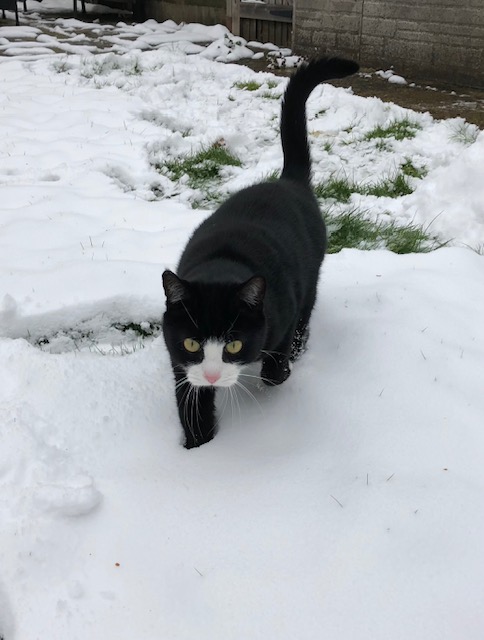Anti-Freeze is Toxic!

We hope you all loved the snow over the weekend as much as we all did with our youngsters and pets! However we wanted to raise awareness about Antifreeze toxicity.
With these cold and icy mornings, we’ll all be grabbing the anti-freeze sprays to try and clear the frost off the windscreens of our cars. Although this quick way of melting the ice is convenient for us, it can pose a risk to cats if they manage to lick any anti-freeze directly or walk over some a spillage and proceed to lick it when grooming themselves. It is also dangerous if a dog ingests anti-freeze, although it is less common for them to have the opportunity to ingest this toxin.
Why is Anti-freeze poisonous?
Anti-freeze contains ethylene glycol, which when metabolised by cats creates toxins which act on the tubular cells in kidneys. This can lead to Acute Kidney Failure.
Symptoms of toxicity
- Vomiting
- Ataxia (wobbling)
- Depression, sometimes leading to collapse
- Hypothermia
- Within 12-24hrs we can see symptoms of acute kidney failure including a reduced or even complete lack of urine production, anorexia and collapse.
Management of cats with toxicity
If aggressive treatment is started as soon as the ingestion has occurred, we have a higher chance of saving the pet.
- We may try and induce emesis (vomiting) to reduce absorption of the ethylene glycol. However, this can be difficult to induce in cats and is only effective if performed with ~2hrs of ingestion.
- Ethanol can be given as an antidote to try and prevent ethylene glycol from being absorbed and metabolised by the body. Giving this antidote comes with it’s own risks- giving ethanol can make them depressed and lethargic (they will experience what we refer to as a hangover), and if the pet suffers with renal issues, we are unable to give ethanol as it creates further strain on the renal function. Unfortunately, if the ethylene glycol has already been metabolised, we cannot give ethanol as an antidote as unfortunately it will be too late to have an effect.
- Fluid therapy is indicated in order to correct any electrolyte imbalances and flush any toxins out of the body.
Unfortunately, the prognosis for any cat that has ingested anti-freeze is guarded as toxicity can occur quickly and once the kidneys have been affected it is unlikely that the cat will recover.
We recommend that if you suspect that your cat has ingested any anti-freeze, or you are seeing any symptoms as described above that you phone us for advice at the Cape Veterinary Clinic on 01483 538990.
Catherine Hannah BVSc MRCVS
Ref: ISFM, VPIS.